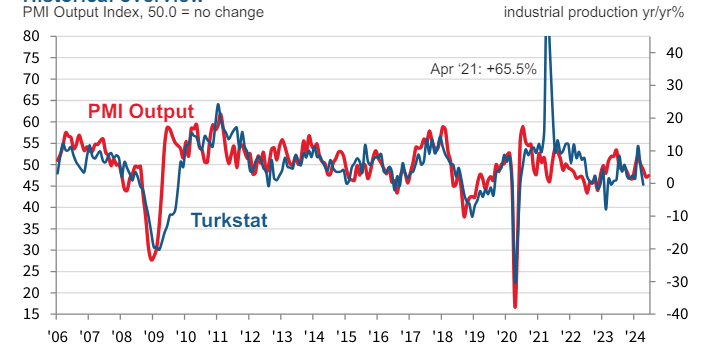In June, the Turkish manufacturing sector experienced subdued demand conditions, leading to moderated output and new orders, with employment scaled back to the largest degree in 20 months. The PMI dropped to 47.9 from 48.4 in May, remaining below the 50.0 no-change mark for the third consecutive month, signaling a modest easing of business conditions. New orders and production continued to slow, particularly in domestic and export markets, with new orders declining more sharply than in May. Employment and purchasing activity also decreased at sharper rates, with workforce numbers declining the most since October 2022.

On a positive note, inflation rates continued to soften, with input cost inflation slowing for the fifth consecutive month and the rise in input prices being the weakest since May 2023. Firms raised their selling prices at the slowest pace in four-and-a-half years due to weaker cost inflation and subdued client demand. Sea transportation disruptions, particularly in the Red Sea, caused further delays in suppliers’ delivery times.
Andrew Harker, Economics Director at S&P Global Market Intelligence, commented that the muted demand is impacting the manufacturing labor market, with firms reluctant to replace departing staff. However, softer cost inflation allowed firms to modestly increase output prices, which may support demand in the future.
